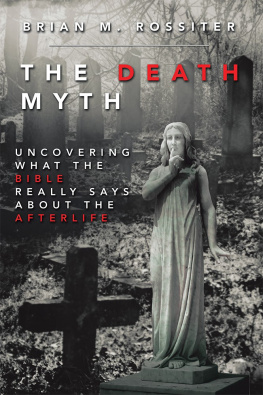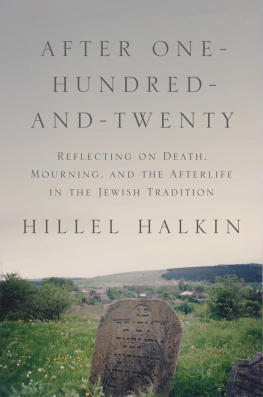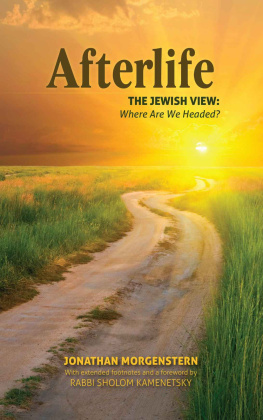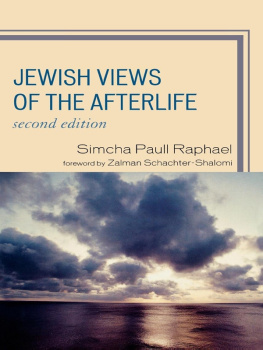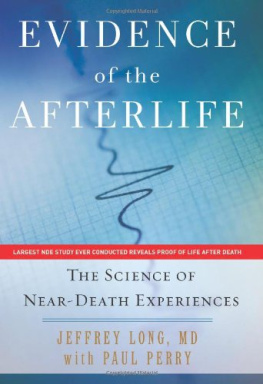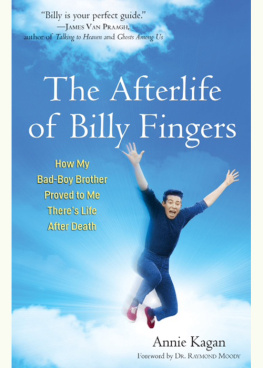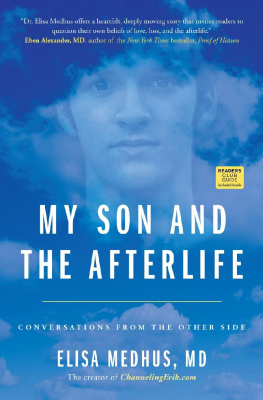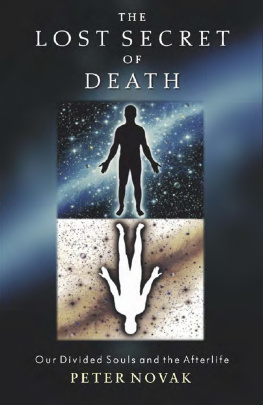THE
DEATH
MYTH
Uncovering What the Bible Really
Says about the Afterlife
BRIAN M. ROSSITER

THE DEATH MYTH
UNCOVERING WHAT THE BIBLE REALLY SAYS ABOUT THE AFTERLIFE
Copyright 2018 Brian M. Rossiter.
All rights reserved. No part of this book may be used or reproduced by any means, graphic, electronic, or mechanical, including photocopying, recording, taping or by any information storage retrieval system without the written permission of the author except in the case of brief quotations embodied in critical articles and reviews.
Unless otherwise noted, all quotations of the Old and New Testament are from the HOLY BIBLE, NEW INTERNATIONAL VERSION. NIV Copyright 1973, 1978, 1984 by International Bible Society. Used by permission of Zondervan. All rights reserved.
iUniverse
1663 Liberty Drive
Bloomington, IN 47403
www.iuniverse.com
1-800-Authors (1-800-288-4677)
Because of the dynamic nature of the Internet, any web addresses or links contained in this book may have changed since publication and may no longer be valid. The views expressed in this work are solely those of the author and do not necessarily reflect the views of the publisher, and the publisher hereby disclaims any responsibility for them.
Any people depicted in stock imagery provided by Thinkstock are models, and such images are being used for illustrative purposes only.
Certain stock imagery Thinkstock.
ISBN: 978-1-5320-3470-1 (sc)
ISBN: 978-1-5320-3469-5 (e)
Library of Congress Control Number: 2017918045
iUniverse rev. date: 12/19/2017
CONTENTS
I would first like to thank the Lord Jesus Christ for providing me with both the inspiration and the motivation to write this book. I would like to thank my wife, Jessi, for her patience and support in the process of bringing this project to completion. Lastly, I would like to thank my brother and best friend, Wayne Rossiter, for the countless discussions and ideas that ultimately helped to shape this books contents.
A s you pass through the wooden doors and begin to make your way across the dimly-lit hallway, you say a solemn hello to friends and relatives you havent seen in years. A handshake here, a how you been? there. Meanwhile, a somber mix of piano and violin plays in the background through the house speakers. After the brief family reunion, you manage to find your way to a vacant seat. Minutes creep by as if they are aware of their own passing. By the time that casual pleasantry begins to bleed into awkward silence, the reverend takes his podium. As he starts to speak his first few carefully chosen words, you become completely in tune with the gravity of the situation. This is a funeral ; a real person, like you or me, has left this world forever.
A prayer invites God to enter the building, and even the skeptics hope (if only for a second) to feel something spiritual. You begin to hear about the person lying in the casketwhere she lived, how long she experienced life, and who she is leaving behind. You quickly glance up to the front row in order to evaluate the condition of the immediate family. The momentary trance ends as the familiar words of Psalm 23 bring you back to focus: The Lord is my shepherd; I shall not want. He makes me lie down in green pastures. He leads me beside still waters. A relative comes up to read his favorite passage of Scripture and provide some personal details about the deceased person that most people in the room were not previously privy to. More passages are read, and you are asked to evaluate your own perspective on eternity. Finally, you hear some long overdue words of encouragement. We know that she is in a better place: somewhere far away from the trials and difficulties of this world. Having gone on to glory, she is now with the Lord.
Most of us have been in this situation before, and heard similar teachings. Its commonplace at Christian funerals around the globe. Its comforting. Its powerful. Its traditional. But the critical question remains: is it true? Will we go on to be with the Lord immediately when we die? If so, will we live as disembodied souls or embodied beings? How will it happen? What will it be like? What exactly does the Bible say about the afterlife?
It has long been known that there are really only two types of peoplethose who have died, and those who will . I feel as though I faced my own mortality at a very young age. I was afraid of death before I even understood all that it entails. The death of a schoolmate disturbed me in the 5 th grade, as did the passing of my paternal grandparents in subsequent years. I can recall a number of sleepless nights from my high school days, many of them due to my own concerns about the fleeting nature of life. Throughout my twenties, I became almost emotionally paralyzed by the problem on more than one occasion. Typically, this was either due to the passing of those around me or my own personal health concerns. The birth of my daughter brought about an even greater sense of self-preservation; all else aside, I wanted to be around for her and my wife, and I sometimes feared that I wouldnt be. Though I feel a much greater sense of peace today than I once did, these difficulties still rear their ugly heads on occasion.
In case you havent picked up on it, I am afraid of death. The reason why is simple: death is the absence of life, and all we have ever known is life. No one among us knows to an absolute certainty what will happen when we depart from this world. Even those who claim to know simply dont. Not for sure. This is why the apostle Paul often referred to Christs return and the resurrection as a matter of hope . While we have good reason to believe in the resurrection and the prospect of everlasting life, we will only know for sure on the day when we receive these gifts. The apostle Paul made the case that if Christ was not raised from the dead, then we should be pitied above all people (1 Cor. 15:19). I think he ultimately meant this in a very personal wayif Christ did not conquer the grave then neither will we. If we will not conquer death, then we have lived our lives in service to something that doesnt even exist. I agree: if that were the case, we should be pitied.
It is this prospect that caused the author of Ecclesiastes (Qohelet)
All of this is intended to drive home one unmistakable pointdeath is a serious matter. I would argue that an honest fear of death is actually quite healthy. Perhaps those who never struggle with the problem are the ones that need to be evaluated. As I have so often told students, it is only when we recognize the problem that we can fully appreciate the solution. While I typically mean this with regards to the effects of the Fall of man and the good news of Jesus Christ, the issue of death is no different.
Though the topic of death captivates many of us, I am not attempting to prove that we possess a soul, a mind, or anything beyond the materialists perspective on life. Instead, I am assuming that we all possess something of the sort. In this, I understand that I am assuming much. Discussions about the nature of the human soul and whether or not such a thing actually exists have long been subjects of debate in both secular and religious circles. For the most part, the Judeo-Christian tradition has always affirmed the existence of a component or quality of human existence that is distinct from the physical body. Typically, religious believers of nearly all stripes refer to this quality or component as the soul. Now, as I will actually seek to demonstrate, the majority view is certainly not always the correct one. Simply saying that something is correct because it is the traditional view or the majority view can be extremely problematic. Tradition is a fine thing in moderation. I will differ with many interpretations and ideologies concerning the soul, specifically any notion that the soul is consciously separable from the body, superior to the body, or that it can somehow exist on its own. In contrast, my view is that the soul is an appropriate term for the information and the memories that characterize each of us.
Next page
